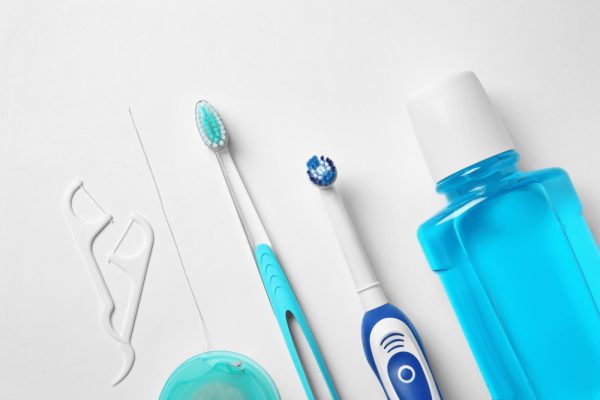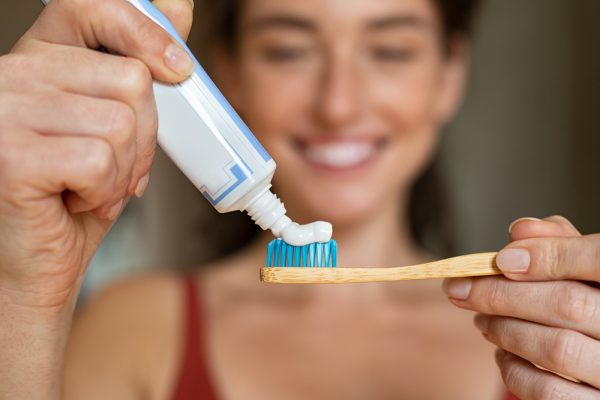Ensure Your Dental Filling Lasts
At Northwind Dental, our Wasilla dentist wants to help you achieve longevity with your dental fillings. Dental fillings are commonly used to restore teeth that have been affected by decay or damage. To ensure your dental filling lasts as long as possible, you’ll want to properly care for them.
Our Wasilla dentist walks you through how to properly care for dental fillings. To schedule an appointment, contact our dental office today by calling (907) 373-2440.

Dental Filling Care Tips
Maintain Good Oral Hygiene
After getting your dental filling, you’ll want to stick to a consistent oral hygiene routine. Regular brushing and flossing are crucial for keeping your dental fillings clean and free from bacteria. Brush your teeth at least twice a day using a soft-bristled toothbrush and fluoride toothpaste.
Additionally, floss between your teeth daily to remove plaque and food particles that can contribute to decay and gum disease. You may also consider incorporating an antibacterial mouthwash into your routine.
Use a Soft-Bristled Toothbrush
To avoid damaging your dental fillings or causing gum irritation, opt for a soft-bristled toothbrush. Hard-bristled brushes can potentially wear down the filling material or cause the edges to become rough, leading to premature wear or discomfort.
Avoid Excessive Force
While brushing, be gentle and avoid applying excessive force when cleaning around the dental fillings. Vigorous brushing or using a hard-bristled brush can put unnecessary stress on the fillings, leading to cracks or loosening. Remember, thorough cleaning can be achieved without aggressive brushing.
Limit Acidic and Sugary Foods
Acidic and sugary foods can contribute to tooth decay and weaken dental fillings. Minimize your consumption of acidic beverages like soda, citrus juices, and sports drinks. Additionally, reduce your intake of sugary snacks, candies, and desserts. If you do consume these foods, rinse your mouth with water afterward to help neutralize acids and reduce the risk of decay.
Avoid Chewy or Sticky Foods
Chewy or sticky foods, such as taffy, chewing gum, or hard candies, can potentially dislodge or damage your dental fillings. These foods create excessive pressure on the filling material, leading to cracks or breakage. Opt for softer and easier-to-chew foods to minimize the risk of damaging your fillings.

Schedule Regular Dental Check-ups
Routine dental check-ups are essential for monitoring the condition of your dental fillings. Our Wasilla dentist will examine the fillings during your visits and ensure they are intact and functioning properly. Regular cleanings and examinations also allow our dentist to detect any signs of decay or damage early on, preventing further complications.
Report Sensitivity or Discomfort
If you experience any sensitivity, pain, or discomfort around your dental fillings, it’s crucial to report it to your dentist promptly. Sensitivity to hot or cold temperatures, biting pressure, or changes in your bite may indicate a problem with the filling. Early intervention can help prevent more significant issues and ensure your fillings are repaired or replaced if necessary.
Avoid Tobacco Products
Tobacco use, whether smoking or chewing tobacco, can negatively impact your oral health and the longevity of dental fillings. Tobacco products increase the risk of gum disease, tooth decay, and oral cancer. Smoking can cause discoloration of the fillings over time. Quitting tobacco is beneficial not only for your fillings but also for your overall oral health.
Wear a Mouthguard During Sports
If you participate in sports or other physical activities, you’ll want to protect your dental fillings from potential trauma. Wearing a properly fitted mouthguard can cushion your teeth and prevent damage to the fillings due to accidental blows or falls.
Maintain a Balanced Diet
Eating a balanced diet that’s rich in essential nutrients, such as vitamins and minerals, promotes good oral health and supports the longevity of dental fillings. Include plenty of fruits, vegetables, lean proteins, and whole grains in your diet. These nutrient-rich foods help strengthen teeth and gums, reducing the risk of decay and supporting the overall health of your dental fillings.

Frequently Asked Questions
Signs of a cavity include:
- Toothache when eating or drinking sweet, hot, or cold items.
- Sensitivity to temperature, sweet, or acidic foods.
- Visible holes, pits, or discoloration on the tooth surface.
- Persistent bad breath.
- Pus or discharge around the tooth.
- Tooth sensitivity to pressure.
- Rough or broken tooth edges.
Yes, a dentist can determine if a filling needs to be replaced through a dental examination. During the examination, the dentist will visually inspect the filling and may also take dental X-rays to assess the condition of the filling and the underlying tooth structure.
Prioritize Dental Filling Aftercare for Long-lasting Oral Health
By following these dental filling aftercare tips, you can help maintain the integrity of your fillings and promote good oral health. Remember to consult your Wasilla dentist by giving us a call at (907) 373-2440 if you have any concerns or questions regarding your dental fillings or oral hygiene routine.
